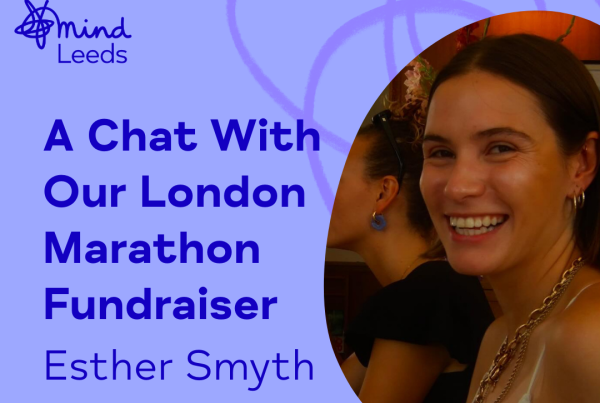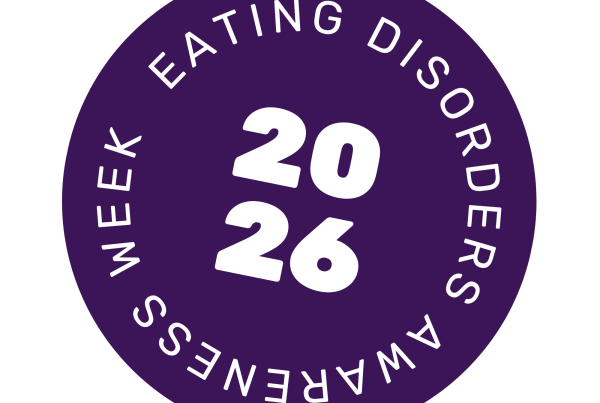Running since 2013, commissioned by Leeds City Council Public Health and delivered by Leeds Mind, the Leeds Mindful Employer Network is the only one of its kind in the UK. We are delighted to announce exciting news that an external evaluation of our work is about to commence. This evaluation will be undertaken by PHIRST Elevate, a research team based at the University of Edinburgh. PHIRST (Public Health Intervention Responsive Studies Teams) is funded by NIHR (National Institute for Health and Care Research).
At a local level, the findings and recommendations from this evaluation will help Leeds City Council and Leeds Mind to identify ways to further enhance our offer for local employers and widen the impact further across the city.
In the conversation below, Anna Martin (Operations Manager at Leeds Mind) discusses the evaluation with Prof Marie Murphy (Co-Principal Investigator, PHIRST-Elevate), Sarah Janac (Knowledge Broker, PHIRST-Elevate), Jillian Manner (Research Fellow, PHIRST-Elevate), Divya Sivaramakrishnan (Evaluation Lead, PHIRST-Elevate), Laura Hodgson (Head of Public Health for Public Mental Health, Leeds City Council) and Leigh Staunton (Mindful Employer Project Lead, Leeds Mind).
Marie, please tell our members about PHIRST and the purpose of its work?

PHIRST Elevate: bridging the gap between research and practice
PHIRST stands for Public Health Intervention Responsive Studies Teams. It is funded by the National Institute for Health and Care Research (NIHR). NIHR appoints PHIRST research teams with expertise in public health evaluations. These teams are then tasked with evaluating public health interventions that are run by local governments across the UK. For local governments it is a competitive process; in order to get an evaluation, they submit an expression of interest, and NIHR prioritises and, if successful, allocates these to the research teams. The PHIRST scheme helps local governments access timely and robust evaluations of various public health programmes. That way, PHIRST supports local government decision-making, and furthers evidence-based practice.
Sarah, why did you decide to focus an evaluation on the Leeds Mindful Employer Network?
Leeds City Council applied for the Network to be evaluated as part of the PHIRST scheme. There are several PHIRST teams involved in the scheme, and our team, PHIRST Elevate, was allocated this particular intervention. Although we are able to indicate preference for interventions we would like to evaluate (the Leeds Mindful Employer Network was on our list!), ultimately NIHR makes the allocation decision. We chose to shortlist the Leeds Mindful Employer Network because our team has expertise in workplace wellbeing, and we were interested in the Network.
What will the evaluation focus on and how will it be conducted, Divya?
Our evaluation will help Leeds City Council to:
1. Understand how Network members translate the network opportunities into action
2. Assess the perceived impact of the Network on employers and employees
3. Make recommendations for programme enhancements, engagement, and sustainability
To answer these questions, we’ll send a survey out to employers, and we’ll also do focus groups with employers and employees. We hope to capture diverse perspectives by speaking to a range of employers and employees from a variety of sectors/industries across Leeds. We also hope to engage organisations not in the Network to capture why and gain a better understanding of how the Network can better cater to and/or engage with those workplaces.
Laura, from a public health point of view, what does Leeds City Council hope to learn and achieve from the evaluation of the work of the Leeds Mindful Employer Network?
The Public Mental Health team at Leeds City Council is really pleased to be working with the University of Edinburgh and Leeds Mind on this evaluation. The evaluation will provide evidence of the perceived impact of Leeds Mindful Employer Network on employee mental health, organisational culture, and stigma reduction. It will offer valuable insight to guide future funding, policy decisions, and the development of targeted support for employers. Importantly, the evaluation will help us engage more effectively with sectors where there is a higher risk of poor mental health across the workforce, by understanding the unique challenges they face and tailoring interventions to improve outcomes in these areas. Ultimately, the aim is to ensure the Network continues to contribute to better, fairer mental health and wellbeing across workforces in Leeds.
Leeds Mind manages the delivery of the Leeds Mindful Employer Network. Leigh, what do you hope the evaluation will achieve/demonstrate? What do you want us to learn?
We hope that the evaluation will give us a clear indication of the variety of ways that employers

Mindful Employer Project Lead Leigh Staunton opening the network’s “Creating Mentally Healthy Workplaces for All” Conference in May 2024.
are translating their Network membership into action in their workplaces. We would love to discover in more detail how employers are embedding the tools and information they’ve gained from being a member (be that from our events, from peer-to-peer networking, from our communications or our resources) to create mentally healthy workplaces for all across the city.
We’d also love to find out a bit more about how this varies depending on sector, location, business size and industry. Having that information to hand will really help us to better target and tailor our approach and ensure its relevance for all employers and employees. In terms of what we’d like to learn, the most important learning will be about why some businesses and organisations haven’t joined or have left. We’d benefit hugely from finding out what would appeal to those employers, and what we could do to make our offer and our support more helpful and relatable for them. This would be a crucial piece of learning in terms of our ambition to diversify our membership to have an even wider impact. We want to spread ripples of positive change further across the city and strengthen our contribution to improving equity for all in terms of having access to mentally healthy and inclusive workplaces.
Jillian, how can local employers get involved in this evaluation? Why are employer voices so important in terms of this evaluation?
Also, how can local employees get involved? Why is the employee perspective important?
We’ll be inviting local employers to actively inform this evaluation. After all, they are at the heart of driving change through the Network. Employer voices are crucial because they illuminate the ‘how’ behind impact. They help us understand what works in real-world settings and where the challenges lie. We’re also keen to hear directly from employees — the people most affected by the changes employers are making. Employee voices are vital because they provide a reality check and help understand how changes made by employers are working.
In the first phase, we’ll be sending a survey to all Network members to explore how employers are putting learning into practice: What new activities, initiatives, policies and practices are emerging? How are workplaces evolving to better support mental health and wellbeing?
For the second part of the evaluation, we will be conducting focus groups and interviews with employers and employees to help us understand the impact of these changes on organisational and employee outcomes. Employees from organisations who sign up for this part of the evaluation will have an opportunity to take part in interviews and focus groups. Organisations interested in taking part in this phase can express initial interest now by contacting Leigh Staunton (leigh.staunton@leedsmind.org.uk), and further information will be shared in due course.
Tell us a bit about public involvement in the evaluation, Sarah. How does this work and why is it necessary?
For each evaluation, we aim to work with members of the public to help shape evaluation. This is important for several reasons. First, it makes our evaluations better. As researchers based in a different city, we are missing valuable local perspectives of what it means to be service users, a patient or a carer, or in this case, a Leeds Mindful Employer Network member. Members of the public can provide us with local context (e.g. why is the public health intervention important for the community?) and help us find the best way to run the evaluation (e.g. what recruitment strategies will work?). Working with members of the public is also important to help us understand which evaluation results are important to the community, and how to best disseminate our findings in terms of format and key messages to maximise the impact of the evaluation.
For each evaluation we establish a public involvement group. We work with this group for the duration of the evaluation, meeting in person or online at regular intervals. Through taking part in discussions, reviewing documents and sometimes through creative exercises, the public involvement group helps shape the direction of the evaluation, and the communication of results.
Jillian, do you have to be a Leeds Mindful Employer Network Member to get involved?
As well as aiming to recruit a range of Mindful Employer Network Members, we would also like to recruit organisations who may know about the Network, but are not (or no longer) a member. Speaking to non-members will help us understand what the motivation or potential barriers might be against joining the Network. This can provide important insights into who benefits from the network, and who might not (and why). It will also help find ways to improve the Network.
When will we hear about the results of the evaluation, Sarah? How will they be presented and how will they be used in terms of public health work?
We are aiming to complete the evaluation by January 2026. There will be different audiences for the evaluation, and we aim to make the evaluation findings and recommendations as tailored as possible to each of the audiences. Audiences will include Leeds City Council, Leeds Mind, the Leeds Mindful Employer Network members and their employees, and councils and organisations running similar programmes (or thinking of running similar programmes). There will likely be a report, possibly a slide deck, infographic or policy briefing. We will also offer workshops or seminars to discuss the evaluation in more detail. The aim will be to work with the public involvement group and key stakeholders to find out how to best communicate the results to employees and identify other interested parties.
Thanks so much to Leeds City Council, PHIRST Elevate and Leeds Mind for contributing to this blog.
Read more about PHIRST Elevate’s evaluation of the Leeds Mindful Employer Network.
If your business or organisation is interested in taking part in interviews and focus groups to inform the evaluation, you can express initial interest now by contacting Leigh Staunton on email (leigh.staunton@leedsmind.org.uk).
Discover more about the work of the Leeds Mindful Employer Network by viewing our Annual Report 2024 – 2025



